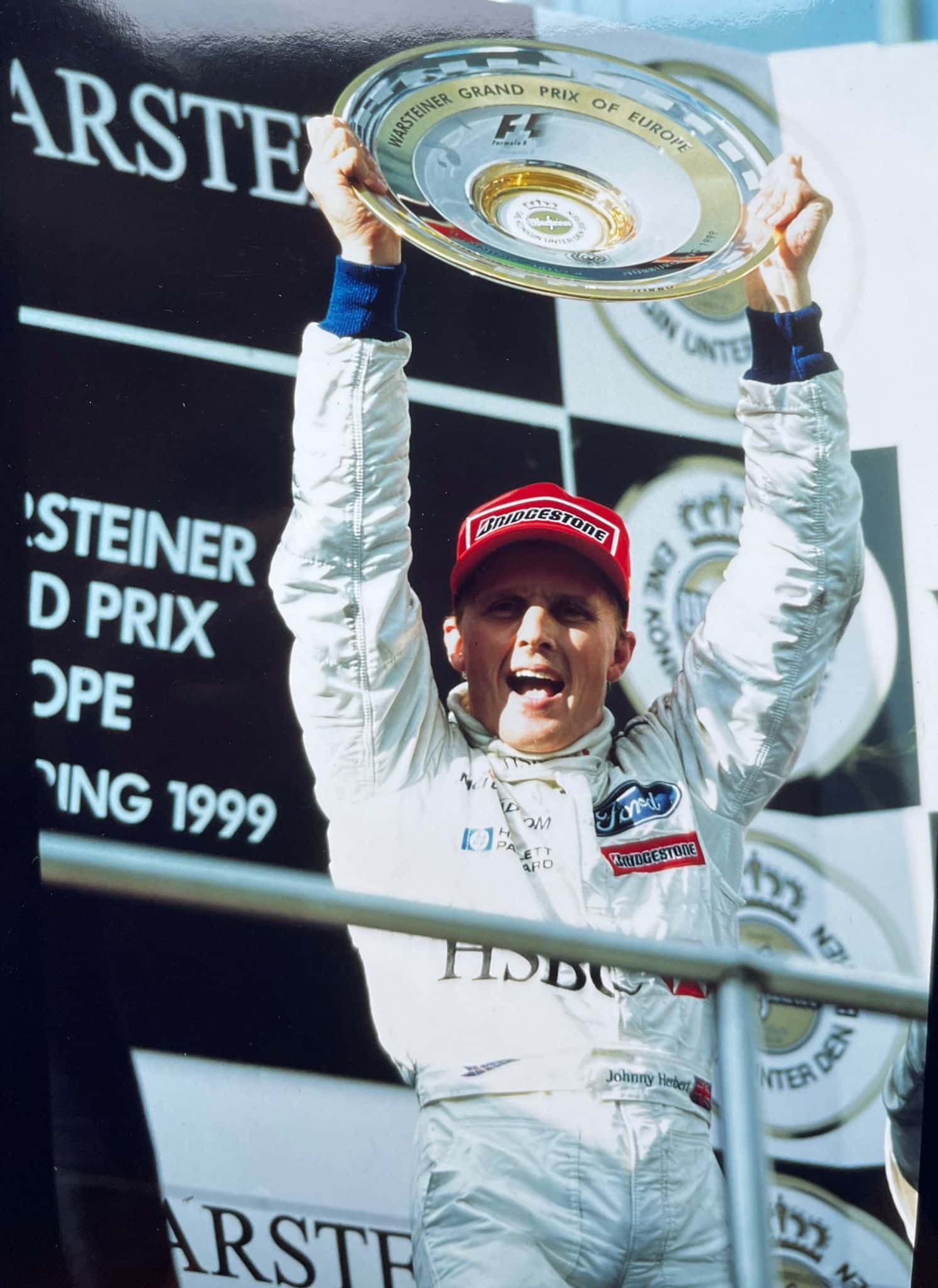
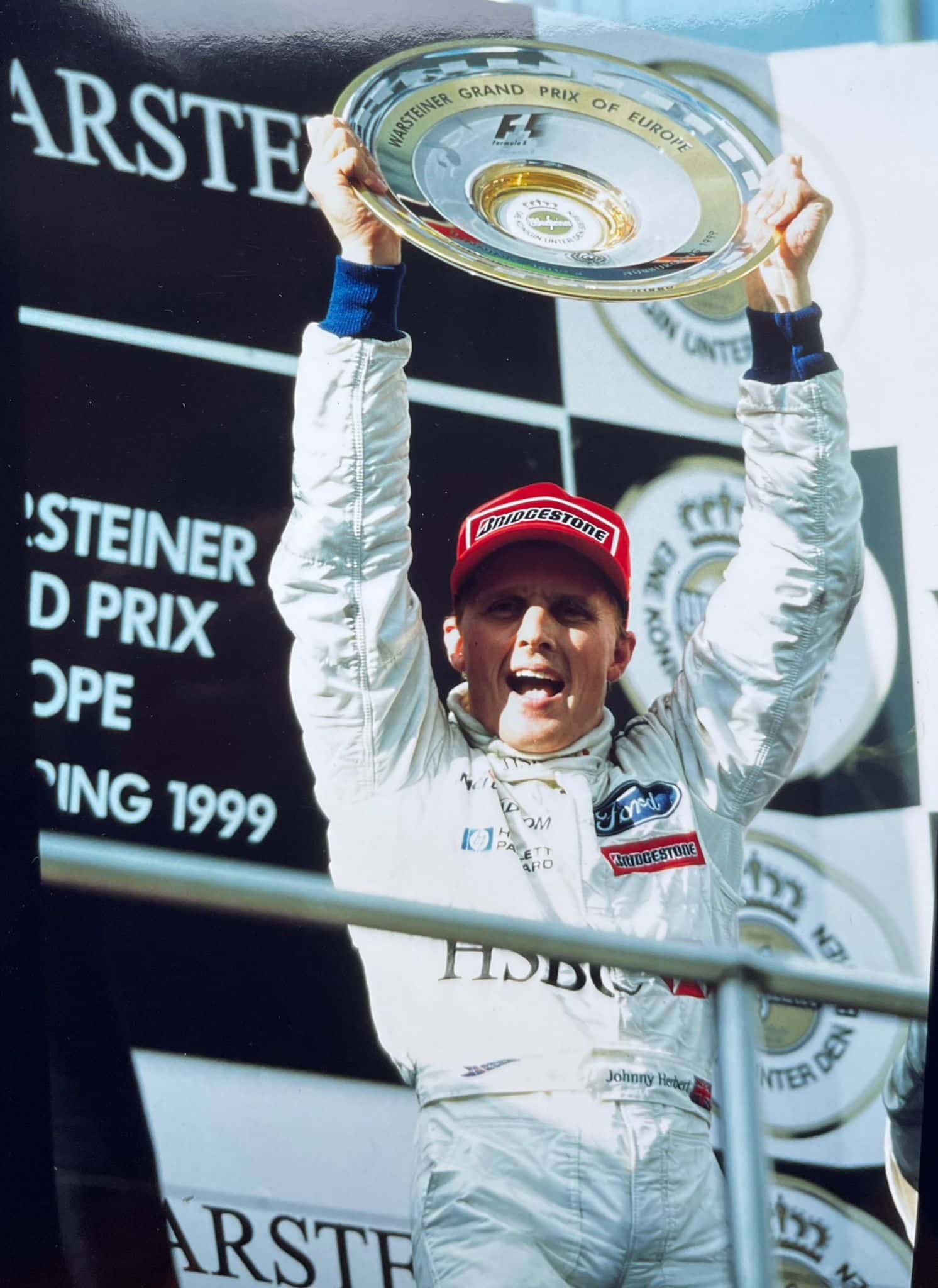
INSIGHTS
Johnny Herbert
Legendary F1 Driver, Commentator and Ambassador
“Being a driver was the most challenging thing I’ve ever done in my life. Even when things are going well, you’ve still got to be very aware that it’s not going to stay that simple and that easy.”
Johnny Herbert has enjoyed an illustrious career in motorsport, having raced for seven different teams in Formula 1. Across his 11-year F1 career, Johnny secured three Grand Prix victories, seven podiums and 98 career points. A true motor racing hero who knows about dealing with both pressure and obstacles, he belongs to an exclusive club of British drivers who enjoyed a successful career in Formula 1.
After progressing through the ranks, Formula 1 beckoned for Johnny Herbert, but not before he was hit by a serious setback, badly breaking both his legs in a major accident at Brands Hatch in 1988. It was an act of huge bravery that saw him back in a racing car at the beginning of 1989. Throughout his incredible career Herbert was at the forefront of the sport, racing against the greats and competing for numerous teams including Benetton, Stewart, and Jaguar from 1989 to 2000. During this time, Herbert won three races: his famous win at the 1995 British Grand Prix, the Italian Grand Prix at Monza that same year as well as the only ever Grand Prix victory for Stewart at the 1999 European Grand Prix.
Johnny’s enduring passion for motorsport extends far beyond just F1–he famously also won the LeMans 24 Hours in 1991 before triumphing in the LeMans Series Championship in 2004. Since retiring from competitive racing, he put his charismatic personality to good use as a leading member of the Sky Sports F1 expert commentary team and continues to work with major motorsport brands and events across the globe – including SMG’s client the Formula 1 Saudi Arabian Grand Prix–in a variety of ambassadorial roles.
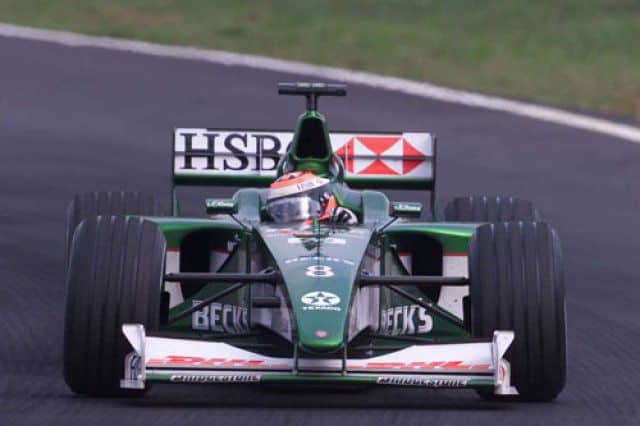
Where it all began
Well, my family was not into Motorsport. My father used to play football on a Sunday, and I played football at school. I used to go on holiday in Cornwall in the South of England where my uncle ran a holiday go-kart track, and I would go there for a couple of days during my holiday. And that’s where suddenly I found I was quick. I found it easy and that was the very start of my journey.
I didn’t race at that point. But then, as I started to do more karting when my father bought my first kart, I started to race, embracing the competitive element and began to win races and championships. That launched me to the next step, which was racing in Formula Ford, and a stepping stone towards the journey to Formula 1. I was nine or ten years old when I realised that this is what I wanted to do. I didn’t realise about the stepping stones in between from karting to get to F1, but I was successful enough to be able to get people to notice me.
I didn’t come from a background of money, but people gave me the chance to drive a car in Formula Ford, and then I met Eddie Jordan of Eddie Jordan Grand Prix who gave me a seat in hisFormula 3 team.We won the Formula 3 British Championships, which was a big step for me to then get noticed by the Formula 1 teams.
Peter Collins, who was at Benetton at the time, gave me my very first chance to drive a Formula 1 car and that journey got stronger and stronger. I had a big accident where I broke both my feet quite badly in 1988, but that didn’t stop me. I still had the drive to do that and had the chance to drive a Formula 1 car with Benetton in 1989 where I finished fourth in my first Grand Prix.
So, it was a journey that was quite easy in the early stages but then after the accident became a little bit more difficult. However, I think it just shows that if you have got the will and determination, you can still achieve big things and for me, luckily, I was able to still win three Grand Prixs and win LeMans 24 Hours. So, it’s been a long journey. I still do a little bit of karting, not racing but a little bit of playing around in a car. I’m nearly 60 years old, but I still enjoy it and am still competitive!
My work with the Formula 1 Saudi Arabian Grand Prix
I have had the privilege to work as a race ambassador for the Formula 1 Saudi Arabian Grand Prix in 2023 and 2024. The race is a very important part of the calendar for Formula 1 and being an ambassador for the weekend’s racing is important as I am able to share my experience as a former Formula 1 driver with the younger generation in this new market for F1. We visited the British International School and Italian School in Jeddah as part of my role, speaking to their students about motorsport from karting all the way up to F1.
It is trying to give them an understanding of what motorsport is all about. It’s not just about being a driver. It’s about being an engineer, a strategist, a mechanic. There are so many different avenues available if it is the sport that one chooses or the professional direction that you feel you will get some excitement from – and you will get some form of excitement whatever you do in the bubble of Formula 1, that is for sure! So, it is an important part of the weekend to share my experiences with the younger generation of Saudi fans who may just be starting to learn about the sport.
Why what I do is important
The work I do is very important because motorsport has got a very good history in Europe and the United States for example. But there are other regions in the world, where motorsport is very new and it’s trying to explain what motorsport and Formula 1 is all about. The only way one can do that is by having key industry people, for example ex-drivers or ex-race engineers, share their experiences. So, I’m lucky to be one of those former racing drivers that can share their involvement and help educate the community in newer markets about the sport I am very passionate about.
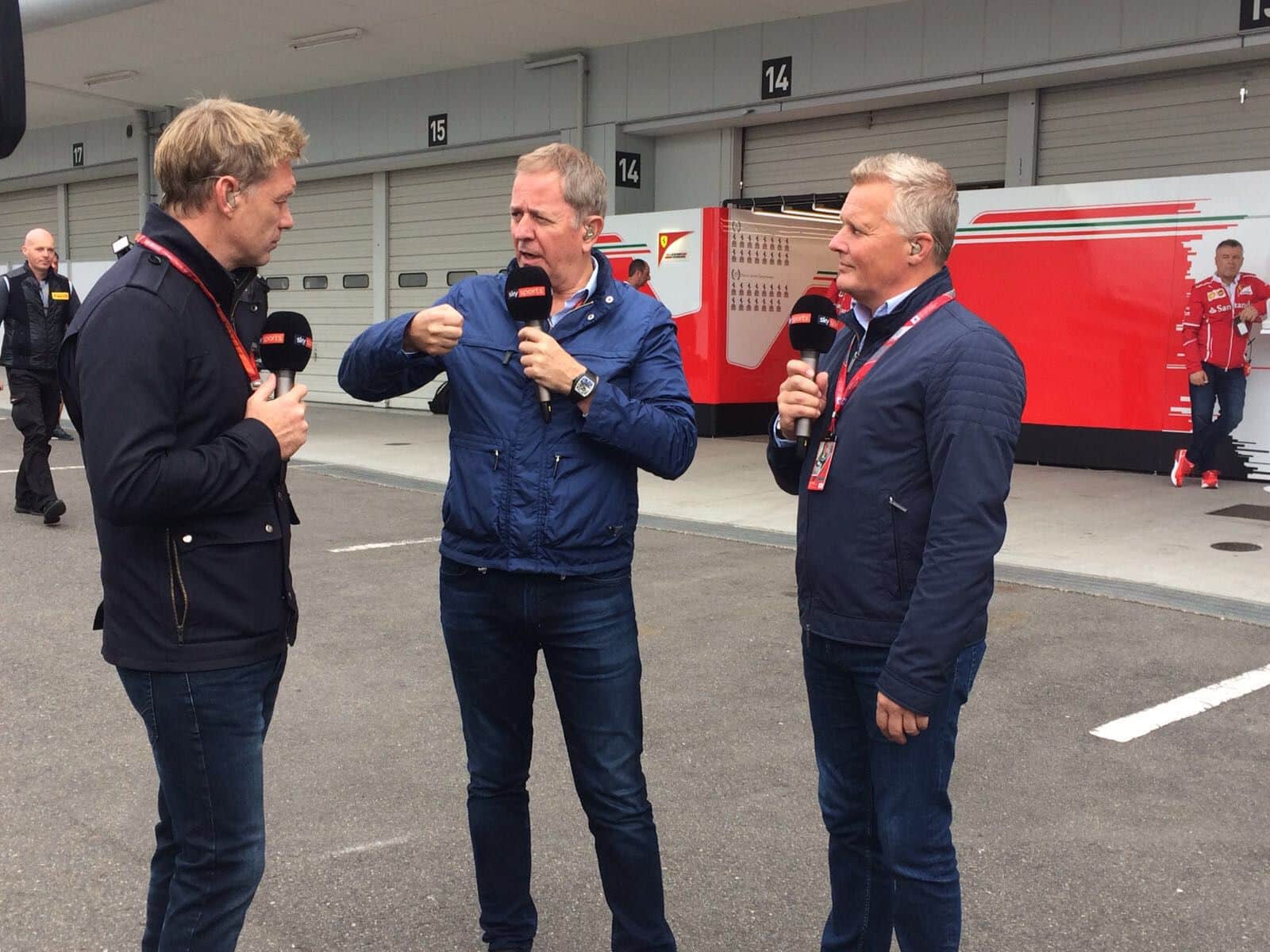
My first race after I retired from F1 racing
My first time at a race being a ‘non-driver’ was when I was with the Midland F1 Racing Team working as their Sporting Relations Manager, where I was basically overseeing the team operations behind the scenes. I found it very interesting, as it was something I had already been involved with from a driver’s perspective. However, it is completely different to the managerial side.I found it fascinating to see how the whole system works to make sure that you get those two drivers and those two cars as competitive as you possibly can. So, it’s the very basics that become a very important factor and my experience of driving I think worked out very well when I took up that position.
My most challenging moment
Being a driver was the most challenging thing I’ve ever done in my life. Even when things are going well, you’ve still got to be very aware that it’s not going to stay that simple and that easy. So, when things become hard you must have the mental capacity to be able to work out how you need to sort out that particular problem.
My biggest challenge was when I had my accident and broke both of my feet. I had to learn a different way of driving. However, it wasn’t just learning a different way of driving just to stay on the circuit but to learn to actually be competitive at the same time. So, my whole style had to change and I would say my character changed also as I was in quite a lot of pain in the early days.
The way I got over that pressure was to laugh about it to myself and that enabled me to relieve all the pressure that was coming from myself, from Formula 1 and from the team I was driving for. It probably wasn’t the perfect way of dealing with the situation, but it was something that worked out well for me because eventually I was still able to win three Grands Prix. It’s very important to believe in yourself, push yourself to the very limits and never give up.
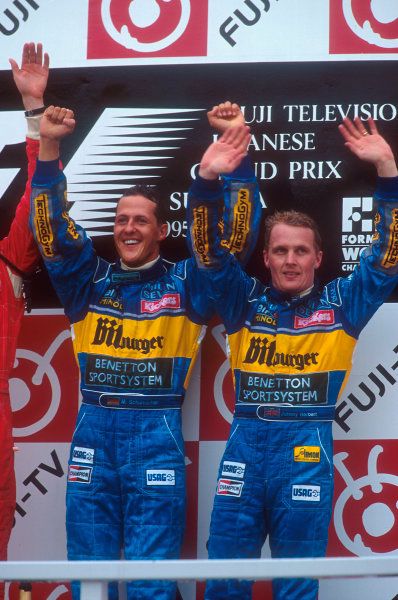
My proudest moment
My proudest moment in my racing career has got to be my first Grand Prix win at Silverstone in 1995 when I was teammates with Michael Schumacher at Benetton – mainly because the journey to get to Formula 1 is not simple, it is a very complicated journey.
You have to work extremely hard within the team that you are driving for, but you also need to use those experiences in a positive way when you get that opportunity. And I got that opportunity at Silverstone – it was something that I still look back on now when I go to the British Grand Prix and I still have wonderful memories of that day. It was worth all the difficulties that I went through to eventually be able to win that race.
My proudest moment in my post-racing career was the transition within the paddock from being a driver to actually working in a different capacity as a TV pundit with Sky TV. I think that was extremely interesting as I found that the friends that you had in the paddock suddenly weren’t as friendly as they used to be when you were a driver as they were always thinking that I was after something and trying to find out the next big scoop to use on TV.
Nonetheless, that was enjoyable. I worked with Damon Hill at Sky, which was really nice. I thoroughly enjoyed that journey. Again, trying to explain to race fans what it is like in the situations that any of the drivers are in, to explain what those feelings are like… I found that very interesting and I am glad that I had that opportunity.
A motorsport memory I will never forget
I suppose it always comes back to my own racing career. I have mentioned my first Grand Prix win at Silverstone before but I think the other one was when I was racing sports cars and won the 24’Hours in Le Mans in 1991 in a Mazda 787B with a Wankel rotary engine. We weren’t favourites going into the race but we had a very reliable car that we pushed 100% from the start of the 24-hour race until the last lap the following day. I was with Volker Weidler and Bertrand Gachot-both Formula 1 drivers at the time.
That success has been something many people still think of as one of the greats of Le Mans because of the noise that the car made. It was one of the noisiest cars that ever raced at Le Mans. It felt like we had all those special ingredients – including a Japanese manufacturer – to win Le Mans for the first time. Achieving that together with Volker and Bertrand was fantastic. It is still such a prestigious race and whenever I go back, it is one of the great weekends of motorsports.
How I’ve worked with SMG
It was a fantastic experience working as race ambassador for the Saudi Arabian Grand Prix alongside the support of the Sports Marketing Group in 2023 & 2024. The working relationship throughout the weekend is something where you’ve got to have the same mentality and thought processes. I think that’s what was great with the team we had on-site. Together, we were always able to adapt to the dynamic surroundings and finding the right balance of being able to talk to the right people at the right time – it’s always about finding those windows.
Timing is of paramount importance on-and off-track and the organisation is a very important part of what F1 is all about. It is a very efficient sport and it’s the same situation when I go out to work in my role as race ambassador. The organisation and timing of the school visits, engagement with 1500 pupils during the pit lane walk, meeting media and key people throughout the race weekend are all important aspects you need to perfect when bringing Formula 1 to a new region so that you can share the experience and joy of being at the race weekend with a new fanbase. The SMG team delivered great organisation alongside in-depth understanding of the process and was always quick to adapt to changing circumstances.
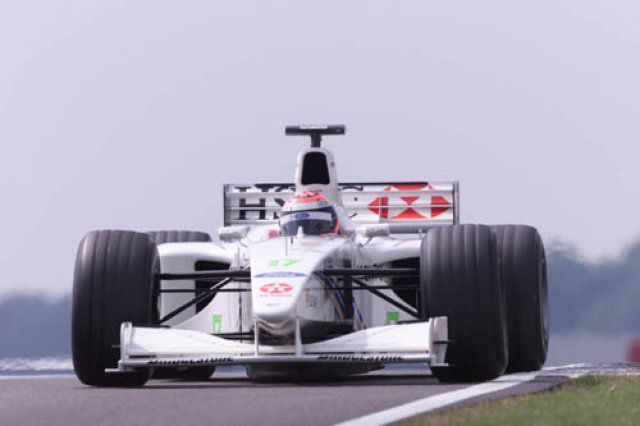
My next goal
There’s always something else that seems to crop up. Currently, I’m in the process of starting to work with Lola Cars, which is a traditional racing car manufacturer founded in the late 1960’s that used to work in Formula 1, IndyCar, Sports Cars, and many various other sports series and is under new ownership since 2022. My role is again that of an ambassador, and I am looking forward to being involved with that and their entry into Formula E. It is also really interesting for me to be on the other side of the fence, working within a team again to try and always be as competitive as we possibly can be.
My advice to others wanting to get a career in motorsports
The lovely thing for someone who wants to have a career in motorsport or who has a dream of getting into Formula 1 is that it is so diverse these days. There is so much more information available and getting that information is easier than ever. When I started out as a driver, we had no internet and no way of really learning extra things after we got home from a race. Same for a mechanic… a mechanic only did his work when he was at a race track or when he went back to the factory.
But now the information is there in front of your screen, and if you have that passion and drive to start with and the desire to work very hard to absorb all the information that is out there, this can greatly work to your advantage when applying for a job in a racing team. There are also so many different avenues for people to enter motorsport now. Take the engineering, design &technology sector alone – job opportunities can range from aerodynamics to suspension and gearbox design, chassis design, carbon design etc. But you must have the knowledge and drive… that is going to make a big difference to your chances of getting into the wonderful world of motorsport.
